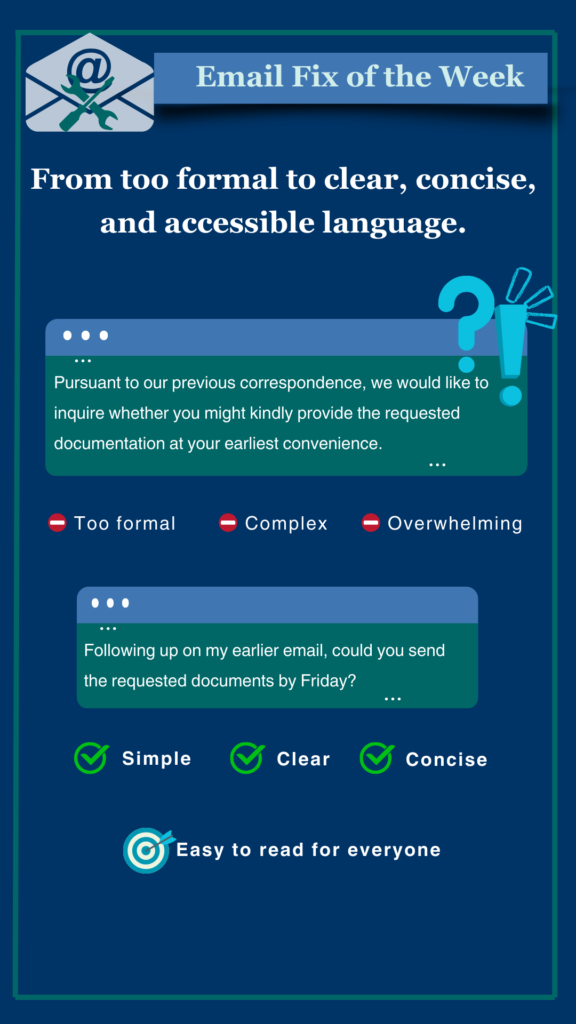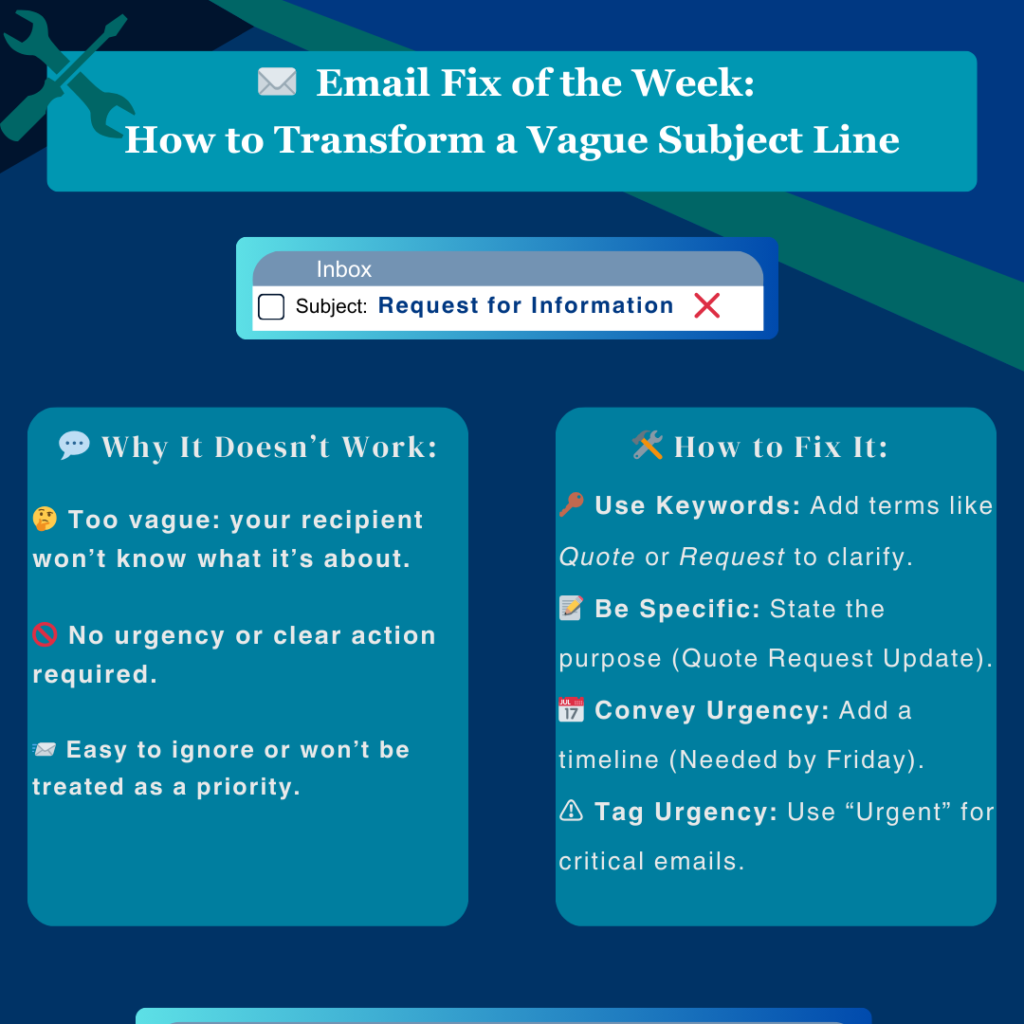Have you ever found yourself using extra formal language in emails to sound polite?
When I first started writing emails in French for work, I often ended up with overly formal and complex sentences as I tried to sound extra polite. It felt like the right approach at the time, but I soon realized that it made my messages harder to understand—especially in a professional setting.
🛠️ Email Fix of the Week: When Overly Formal Language Creates Confusion
💡 The Problem:
Here’s a common overly formal example:
“Pursuant to our previous correspondence, we would like to inquire whether you might kindly provide the requested documentation at your earliest convenience.”
While it sounds polite, this kind of sentence is unnecessarily complex and can overwhelm your reader.
✔️ The Fix:
Instead, try using clear, concise, and accessible language:
“Following up on my earlier email, could you send the requested documents by Friday?”
✨ Why it works:
Simple language gets your point across quickly and avoids confusion. It’s polite but also clear and direct—an approach that works best for building relationships in a global workplace.
📌 Your Takeaway:
Being professional doesn’t mean overcomplicating your emails. Use language that’s easy to read, culturally neutral, and focused on your message.
💬 What’s your go-to strategy for writing professional yet simple emails? Share in the comments!
♻️ Share this post to help your network write clearer, more effective emails.





